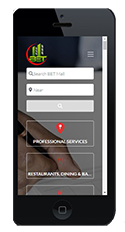Explore Black News, your trusted source for comprehensive coverage of events, stories, and perspectives within the Black community. Stay informed with insightful articles, features, and updates that celebrate achievements, address challenges, and highlight cultural milestones.
AME Church Bishops pose with Black bankers and business leaders after announcing historic partnership.July 3, 2018
PHOTO: Klarque Garrison/Trice Edney News Wire
The Black church, among the most prosperous institutions in America, has long led movements for the spiritual, social and civic uplift of Black people. When the Rev. Dr. Martin Luther King Jr. was assassinated on April 4, 1968, he had just launched the Poor People’s Movement, which quickly fizzled after his death.
With this historic backdrop, the African Methodist Episcopal Church – with a legacy of leadership in its own right – has announced an innovative economic partnership with Black-owned banks across the country. The partnership aims to be a catalyst to spur business development, homeownership and wealth in the Black community.
“We are now pleased to announce a partnership with the presidents of the nineteen (19) Black banks in the United States, with the goal of increasing Black wealth,” said Bishop Reginald T. Jackson, president of the Council of AME Bishops. “This initiative will strengthen Black banks across the United States and increase their capacity to lend to small businesses, to secure mortgages, to provide personal lines of credit, and to offer other forms of credit to AME churches and our members. This, of course, includes enabling members and their families to become homeowners.”
Bishop Jackson made the announcement during a press conference held during the 2018 Council of Bishops and General Board Meeting in Atlanta June 26. The specific details of a memorandum of understanding are being formulated and will be announced this summer. But the goals are as follows:
· Increase deposits and loans with Black banks;
· Increase Black homeownership to over 50 percent nationwide. This means 2,000,000 more Black homeowners than now exist; and
· Grow the number of Black businesses from 2.6 million to 4 million and total gross receipts from an average of $72,500.00 to $150,000.00.
“The spirit in which you all have shared the commitment to the community, to the banks and to what we can do together is outstanding,” responded Preston Pinkett, III, chairman and CEO of the City National Bank of New Jersey and chairman of the National Bankers Association. “Thank you for your willingness to step outside of the norm to do something that I would say is extraordinary here in America and extraordinary in the world.”
Pinkett says the church-bank partnerships are already beginning around the nation. “It is safe to say that this kind of commitment; this kind of demonstration will go a long way in supporting our banks and the banks to be able to support the community…With God’s blessings, we will accomplish great things.”
Mortgage Banker Lois Johnson, president/CEO of Salt Lake City-based United Security Financial, said she takes “great pride in our HUD designation as a fair practice lender. We provide loans to all who meet the minimum criteria, especially people of color who have been denied the opportunity to have their own homes.”
Johnson, who is licensed to operate in 49 states, says she intends to travel to each of the AME church’s episcopal districts to “create hope and opportunities.”
The principals agreed that the key to the success of the partnership must be mutual respect for Black spending power and mutual support of Black businesses.
“We hear about Black folks have a trillion dollars in spending power,” said Ron Busby, president/CEO of the U. S. Black Chamber, Inc. and co-founder of Black Wealth 2020. “But that’s usually White folk talking about our dollar sand how can they get their share of it. We came together to say how can we deal with the Black wealth, the gap of it and really to move our agenda forward inside our own community.”
Robert James, CEO of the Carver State Bank in Savannah discussed how the movement will be sustained. “There was a time that no church got financed in Savannah Georgia unless we financed them at Carver State Bank,” James said to applause. “This program will get us back on the path.”
“I hope we will all come together and support the idea of putting all of our money in Black banks. I have already taken the initiative and listed all of the Black banks in the country on our website. I’m already encouraging all Black people when I do presentations to say we’ve been stupid for too long. We drive past Black banks to give our money to people who don’t give a hoot about us. And they take our money so they can get rich; not only here, but in Africa. We’ve got to change this!


